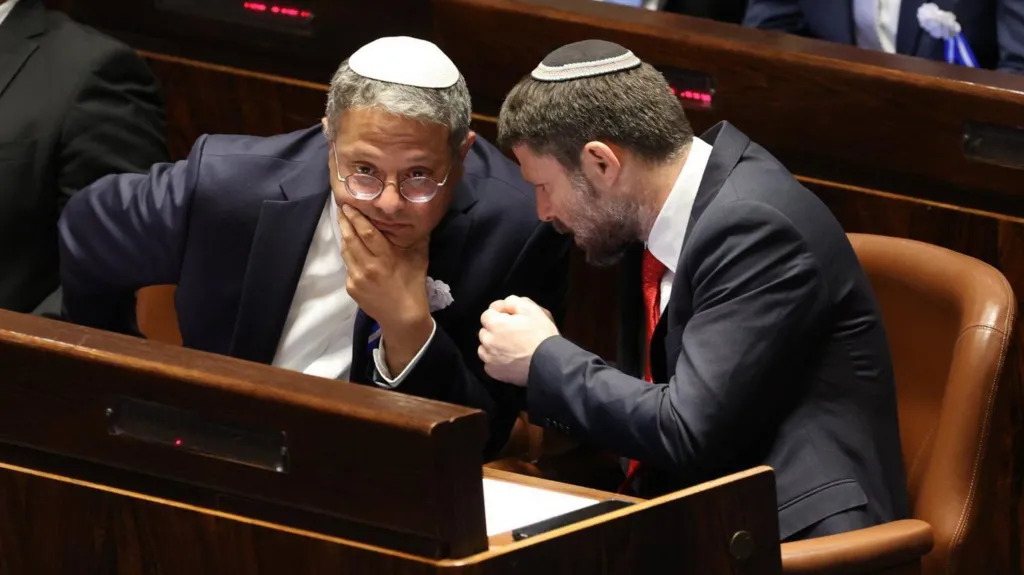
Tel Aviv, Israel – A political storm is brewing within Israel’s coalition government as two key ministers, Finance Minister Bezalel Smotrich and National Security Minister Itamar Ben-Gvir, have threatened to resign over a ceasefire proposal mediated by US President Joe Biden. This unprecedented internal conflict threatens to unravel Prime Minister Benjamin Netanyahu’s fragile coalition, which balances on a narrow majority reliant on far-right factions.
The controversial proposal, introduced by President Biden, calls for a six-week ceasefire in Gaza, commencing with an Israeli Defense Forces withdrawal from populated areas, leading to a comprehensive hostage release and a “permanent cessation of hostilities.” This initiative, which also includes an expansive reconstruction plan for Gaza, has ignited a fierce debate within Israeli politics and among its populace.
Ministers Smotrich and Ben-Gvir have vehemently opposed the deal, insisting that any ceasefire must be predicated on the complete dismantlement of Hamas’s military and governance structures. Their potential departure from the government could lead to the dissolution of Netanyahu’s administration, posing significant risks to its stability.
Meanwhile, opposition leader Yair Lapid has expressed support for the ceasefire, offering to provide a political “safety net” to the Prime Minister should the far-right ministers proceed with their resignations. This offer indicates potential shifts in political alignments and underscores the broader implications of the ceasefire agreement on Israel’s political landscape.
The proposal has also sparked widespread public discourse, evidenced by the substantial protests in Tel Aviv. Tens of thousands have gathered, advocating for the government to accept the ceasefire while simultaneously expressing concerns over Netanyahu’s leadership, with some demonstrators calling for his resignation.
As mediators from Egypt, Qatar, and the United States urge finalization of the deal, international support grows, with UK Prime Minister Rishi Sunak voicing readiness to increase aid to Gaza upon acceptance of the ceasefire.
This political turmoil occurs against the backdrop of ongoing violence in Gaza, where recent reports indicate continued military engagement, including airstrikes and shelling, contributing to significant casualties.
As Israel navigates these tumultuous waters, the world watches closely, waiting to see if Netanyahu’s government will embrace a path toward peace or if internal dissent will steer the nation toward further conflict.

Be First to Comment